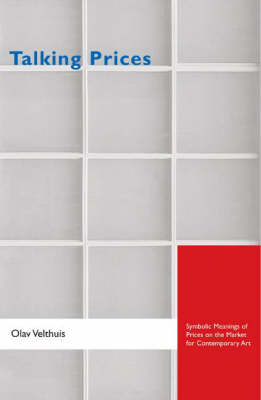Princeton Studies in Cultural Sociology
1 total work
How do dealers price contemporary art in a world where objective criteria seem absent? "Talking Prices" is the first book to examine this question from a sociological perspective. On the basis of a wide range of qualitative and quantitative data, including interviews with art dealers in New York and Amsterdam, Olav Velthuis shows how contemporary art galleries juggle the contradictory logics of art and economics. In doing so, they rely on a highly ritualized business repertoire. For instance, a sharp distinction between a gallery's museumlike front space and its businesslike back space safeguards the separation of art from commerce. Velthuis shows that prices, far from being abstract numbers, convey rich meanings to trading partners that extend well beyond the works of art. A high price may indicate not only the quality of a work but also the identity of collectors who bought it before the artist's reputation was established. Such meanings are far from unequivocal. For some, a high price may be a symbol of status; for others, it is a symbol of fraud.
Whereas sociological thought has long viewed prices as reducing qualities to quantities, this pathbreaking and engagingly written book reveals the rich world behind these numerical values. Art dealers distinguish different types of prices and attach moral significance to them. Thus the price mechanism constitutes a symbolic system akin to language.
Whereas sociological thought has long viewed prices as reducing qualities to quantities, this pathbreaking and engagingly written book reveals the rich world behind these numerical values. Art dealers distinguish different types of prices and attach moral significance to them. Thus the price mechanism constitutes a symbolic system akin to language.
